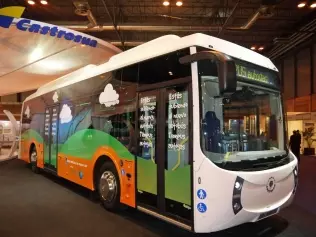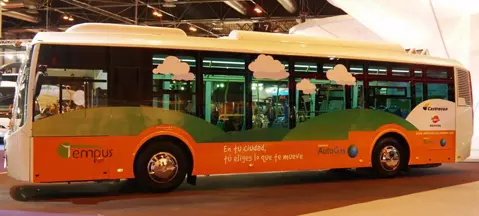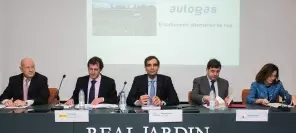- Main page
- Search
- Up to date
- Products
- Technology
- Vehicles
- Video
- Conversion Payback Simulator
Port Injection - Conversion Payback Simulator
Direct Injection - Conversion Payback Simulator
Diesel - Newsletter
Autogas bus still in the works
 loading results...
loading results... © RepsolBy the looks of things, Castrosua is no longer a part of the autogas bus initiative, but the vehicle itself is nearing production
© RepsolBy the looks of things, Castrosua is no longer a part of the autogas bus initiative, but the vehicle itself is nearing productionDevelopment of the bus is an initiative involving a number of companies and institutions. Among them are: Repsol's Technology Unit, the Polytechnic University of Valencia, Spanish engine manufacturer Begas and Chinese bus manufacturer King Long (apparently in place of Castrosua, who was previously responsible for developing the platform and body). And, last but not least, the Valladolid City Council, since the vehicle, once operational, will be deployed in Valladolid as a public transport city bus. The city already runs LPG-powered people carriers, but looks forward to updating its aging fleet with the LPG hybrid newcomer.
According to creators of the bus, a functional prototype is almost ready and will be unveiled in June 2017. Importantly, when the bus is production-ready, it's expected to be priced similarly to diesel-powered counterparts, which should be the key to its potential success. Due to its autogas-electric technology, not only will the Tempus be cheaper to operate and maintain for city bus fleet operators, but – maybe even more importantly – it will spew out significantly less pollutants from its tailpipe.
Just to remind you, Spain – and in particular its capital city of Madrid – is at war with diesels and promoting autogas use instead. All LPG-powered vehicles are eligible to bear the ECO label, which exempts them from traffic restrictions, like city centre entry bans or use limitations during smog alerts. Spain aims to have 250 thousand vehicles running on autogas by the year 2020. Let's hope at least some of them will be city buses.
You may also find these interesting:
 loading results...
loading results...








